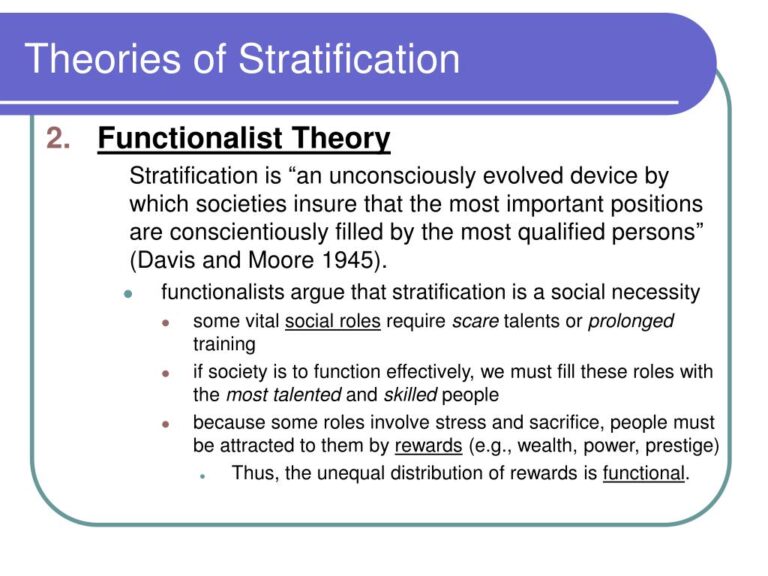
UPSC MAINS SOCIOLOGY – Paper 1 – Chapter 5 – Stratification and Mobility – Theories of social stratification- Structural functionalist theory, Marxist theory, Weberian theory.
- Social stratification refers to a system by which a society ranks categories of people in a hierarchy.
- Structural functionalist believe that social stratification in society exists because it serves an important role in the functioning of the society.
- Different strata are created due to differential capacity of actors and their ability to perform different roles.
- According to structural-functionalists, stratification and inequality are inevitable and beneficial to society.
THINKERS WITH FUNCTIONALIST VIEW ON STRATIFICATION
- The Davis-Moore thesis states that social stratification has beneficial consequences for the operation of society. Davis and Moore argue that the most difficult jobs in any society are the most necessary and require the highest rewards and compensation to sufficiently motivate individuals to fill them.
- According to Talcott Parsons, ‘every society is based upon consensus in terms of norms and values’. Differential conformity and differential rewards form strata in society. Parsons acknowledges that there is inequality in society but this is deemed as legitimate as per values and norms.

DAVIS- MOORE’S THESIS
The functional theory of social stratification formulated by Kingsley Davis and Wilbert E. Moore highlights
i) Inevitability of social stratification.
ii) Need for differential intent and ability for different functions.
iii) Differential evaluation of different social positions and duties.
iv) Reward on the basis of differential value attached with different functions.
v). Values and rewards constituting the social differential and stratification.
Thus, social stratification is a consequence of inevitability of differentiation of roles and approaches to Social Stratification duties.
CRITICISM
- Melvin Tumin defines social stratification as an arrangement of any social group or society into a hierarchy of positions that are unequal with regards to power, property, social evaluation and psychic gratification. He also said that it is not possible to determine the relative functional importance of various social positions in an objective manner.
- Dahrendorf observes that stratification originates from the closely related trinity of norms, sanction and power.
- Beck and Baudrillard visualises that functional stratification is no longer valid as inequalities are now individualized and no clear strata exists today.

